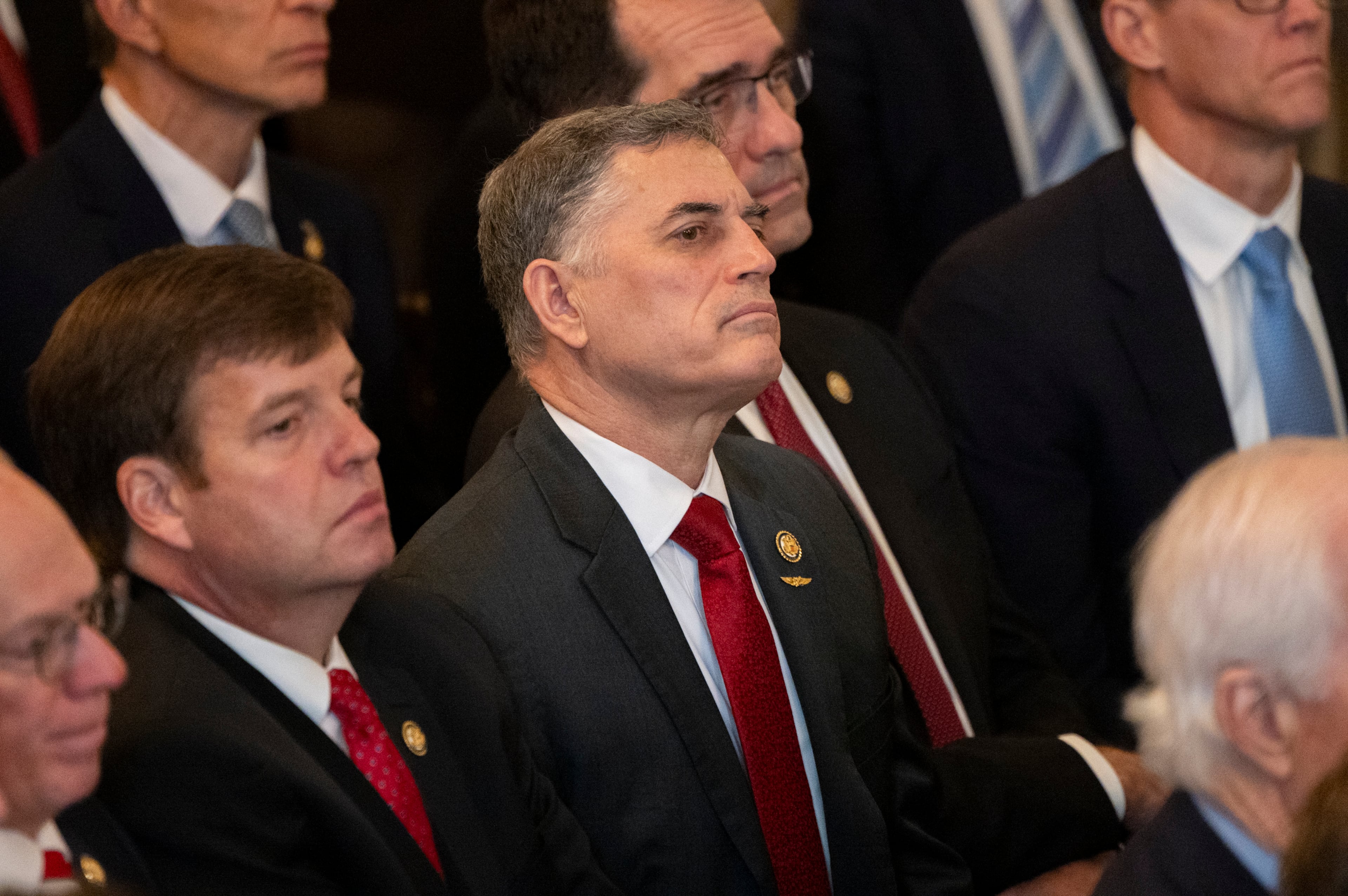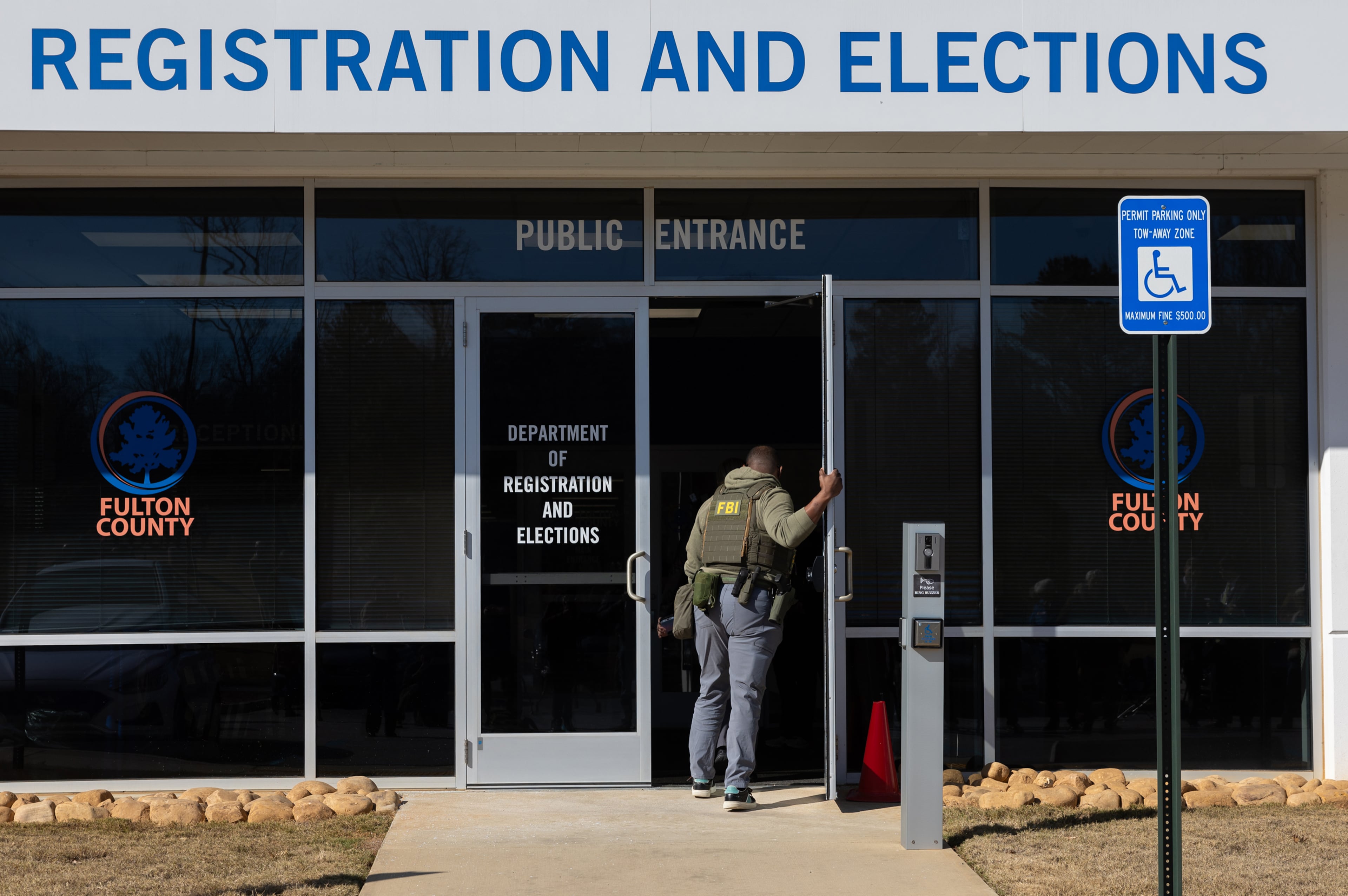The Trump economy would not be good for Georgia

If it’s any comfort to my Republican friends who have been thinking about leaving the top of the ticket blank or even holding their nose and voting for Harris-Walz, former President Donald Trump’s economic agenda is not that good for Georgia.
Georgia’s leaders, Democrats and Republicans, have been forward looking, while Trump’s platform, “Agenda 47,” is firmly rooted in the past. It’s not just a problem of relitigating the 2020 election or re-creating an idealized vision of America rooted in 1950s social structures, Trump’s economic policy is about privileging old and soon-to-be obsolete industries and technologies; it’s about imposing stiff tariffs rather than supporting global industry; and, of course, it’s about mass deportation while shutting down legal immigration.

None of this is good for Georgia.
While the United States, like every other country in the world, has struggled with inflation, Georgia’s economy has been booming. Since 2022, Georgia has experienced one of the longest periods of full employment in recent history. And this progress is in part because of the state’s Republican leadership capitalizing on an aggressive Democratic national industrial policy to promote clean energy and high-tech manufacturing.
Sparked by the incentives in the Inflation Reduction Act and the bipartisan infrastructure bill, companies across the country have committed to making hundreds of billions in “clean tech” investments — largely electric vehicles, batteries and technologies that support wind and solar power. Georgia is one of the top recipients of this investment in the nation. By one measure, just in the past two years, Georgia has seen about $24 billion in investment and the creation of more than 30,000 jobs in clean tech industries. We can see it all around us: SK industries and FREYR are building plants to manufacture electric batteries; Hyundai, Kia and Blue Bird are developing or expanding plants to build electric vehicles, Qcells is expanding in northwest Georgia, and Suniva in Norcross have reopened to manufacture solar panels.
But Trump’s agenda could bring this all crashing down. One of Trump’s top priorities is to repeal the tax credits and incentives for clean energy that were passed as part of the Inflation Reduction Act and to reinstate policies that support old technologies such as combustion engine automobiles and fossil fuels. Trump’s policies would favor natural-resource dependent states and the Rust Belt at the expense of states like Georgia that are investing in developing a 21st-century manufacturing base. Already Republicans in Georgia are quietly maneuvering to try to block Trump. Recently, Rep. Buddy Carter, R-Savannah, sent a letter to House Speaker Mike Johnson, R-La., urging him to keep the Inflation Reduction Act’s clean energy tax credits in place.
At the same time, Trump is proposing at least a 10 percent across the board tariff on imports. Though there is a time and place for selected tariffs, Trump’s proposal is essentially a 10% tax increase on any imported goods. This will feel similar to inflation to most consumers as it drives up the cost of goods, but also as we saw so clearly during the coronavirus pandemic, most businesses in Georgia are integrated into a web of global supply chains — and all would be damaged by these kinds of sweeping tariffs. Georgia’s pride and joy, the Port of Savannah, has been booming because of increases in global trade, and Georgia’s governor has been traveling the world, even hanging out with the hoity-toity, liberal elites in Davos, Switzerland, to promote global trade with Georgia. All of this could be damaged if Trump were to impose massive tariffs. Again, Republicans are quietly trying to steer Trump away from these ideas because they are not good for the country — and they are not good for Georgia.
Last, Trump’s Agenda 47 promotes strong borders but also mass deportation with zero effort to fix the system of legal immigration. Georgia actually tried to crack down on undocumented workers in 2011, and an estimated $300 million in crops rotted in the fields in South Georgia because there was no one available to work. Further, one of the major drivers of inflation over the past two years was a labor shortage, which has been significantly reduced by increasing immigration. Yes, the borders need to be secure, and, yes, we need to make sure we are protecting public safety, but we also desperately need reform to improve legal immigration to address workforce needs as well as very real humanitarian needs, such as helping refugees from Afghanistan who put their lives and their families lives on the line to protect American soldiers.
Trump’s plan is to have the police, the National Guard and even the military round up millions of people in this country, put them in mass deportation camps and ship them out of the country. Because our immigration system is so broken, this will almost certainly include people who came here legally and were trying to play by the rules, as well as those who have an immigration status that can be revoked at will by the president. But even if it doesn’t, “mass deportation” will wreak economic (and human) havoc in immigrant-heavy Gwinnett County, where I live, and will very likely have a profoundly negative effect on the rest of the state as well.
Of course, there are other economic issues and neither party is perfect, but these three proposals are core to Trump’s Agenda 47 and none would do anything good for Georgia. If anything, they go precisely in the opposite direction of where Georgia’s leaders, Republicans and Democrats, have been taking the state. Trump is looking to the misremembered glory of the past, but Georgia is looking to the very real future.


